
Myositis: Causes, Symptoms, Prevention, Diagnosis, Treatment

Department of Rheumatology

6 Min Read
Mar 23, 2023

Book Appointments &Health Checkup Packages

Book Appointments &Health Checkup Packages




























Rheumatological diseases are one of the most common disorders in the community affecting about one-third of the adult population. These include a spectrum of disorders ranging from soft tissue rheumatism to arthritis that affects the joints, muscles, and bones. Manipal Hospitals' Rheumatology Department offers complete assessment and management for a wide range of rheumatic problems. The team of world-renowned rheumatologists has immense experience in diagnosing and treating the various musculoskeletal disease, and systemic autoimmune conditions referred to as rheumatic diseases.

Manipal Hospitals in India is ranked one of the nation's top hospitals, and its Rheumatology practice is the most comprehensive in the country. Manipal Hospitals' rheumatologists are constantly pushing the limits and seeking novel methods to improve diagnosis and therapies for patients with rheumatic disorders through their research and collaborating with researchers worldwide. Combined with its multidisciplinary approach,Manipal Hospitals offers the best treatment for rheumatoid arthritis in India with innovative and advanced tools and technology to diagnosis, treatment and care, the Department of Rheumatology at Manipal Hospitals is the leader in the country.
These types of medications reduce pain, joint damage, and inflammation. Doctors will prescribe steroids in the case where acute symptoms need relief.
Disease modifying antirheumatic drugs help in slowing the progression of rheumatoid arthritis and protect the tissues and joints from permanent damage.
These are also called biologic response modifiers are a new class of DMARDs. They can target specific parts of the immune system that are prone to triggering inflammation that can cause tissue and joint damage.
Intraarticular Injection is a procedure where the affected joint is injected with a hypodermic needle, through which medications are delivered.

Rheumatic diseases are the second most common cause of YLD’s (Years lived with disability) after mental illness and substance abuse. India takes a huge toll of these rheumatic diseases with approximately 5 million people affected with Rheumatoid arthritis alone
Manipal Hospital's rheumatologists treat adult rheumatic conditions. They provide expert and personalized care for every patient.
Our rheumatology team are accomplished in the evaluation and treatment of rheumatic conditions including various types of arthritis, autoimmune diseases, degenerative joint diseases, crystal arthritis, and soft tissue rheumatism. The department of rheumatology provides interdisciplinary care working in conjunction with other specialities such as internal medicine, orthopaedics, dermatology, nephrology, gastro-enterology, neurology physical medicine and rehabilitation to provide an all-inclusive treatment and also help in recovery from these conditions.
Conditions evaluated and managed by the department of rheumatology at Manipal Hospitals are Rheumatoid arthritis, Osteoarthritis, Seronegative arthritis, Ankylosing spondylitis, Psoriatic arthritis, Spondyloarthritis, Crystal arthritis such as Gout, Soft tissue Rheumatism such as tennis elbow, plantar fascitis, Fibromyalgia, Lupus, Sjogren’s syndrome, Scleroderma, Myositis, Vasculitis, ANCA vasculitis, cutaneous vasculitis, Undifferentiated connective tissue disease, Arthritis associated with systemic diseases, Ophthalmological condition such as uveitis and scleritis Various OPD procedures such as; intra-articular and soft tissue injections, minor salivary gland biopsy, Schirmer’s test and Nail-fold capillaroscopy are also offered here.
Patients visit the Rheumatology department at Manipal Hospitals India for expert diagnosis, advanced treatment, and personalized care. The department specializes in managing Steroids, NSAIDs, DMARDs, Biologic Agents, Intra Articular Injection, ensuring world-class medical support for patients.
The Rheumatology department at Manipal Hospitals India provides a wide range of treatments, including:
To book an appointment with a Rheumatology expert at Manipal Hospitals India, please call 1800 102 5555. Our dedicated team will assist you in scheduling a convenient consultation.
The Rheumatology department is led by highly qualified specialists, including:
For your initial consultation at Manipal Hospitals India, please bring:
Providing these documents will help our specialists ensure a comprehensive diagnosis and personalized treatment plan.
Manipal Hospitals India is a preferred choice for Rheumatology due to:
We are committed to providing world-class healthcare with compassionate service.
At Manipal Hospitals India, we offer facilities such as:
Conditions evaluated and managed by the department of rheumatology at Manipal Hospitals are Rheumatoid arthritis, Osteoarthritis, Seronegative arthritis, Ankylosing spondylitis, Psoriatic arthritis, Spondyloarthritis, Crystal arthritis such as Gout, Soft tissue Rheumatism such as tennis elbow, plantar fascitis, Fibromyalgia, Lupus, Sjogren’s syndrome, Scleroderma, Myositis, Vasculitis, ANCA vasculitis, cutaneous vasculitis, Undifferentiated connective tissue disease, Arthritis associated with systemic diseases, Ophthalmological condition such as uveitis and scleritis Various OPD procedures such as; intra-articular and soft tissue injections, minor salivary gland biopsy, Schirmer’s test and Nail-fold capillaroscopy are also offered here.
Our team ensures precise diagnosis and treatment planning for each patient.
Manipal Hospitals in India is ranked one of the nation's top hospitals, and its Rheumatology practice is the most comprehensive in the country. Manipal Hospitals' rheumatologists are constantly pushing the limits and seeking novel methods to improve diagnosis and therapies for patients with rheumatic disorders through their research and collaborating with researchers worldwide. Combined with its multidisciplinary approach,Manipal Hospitals offers the best treatment for rheumatoid arthritis in India with innovative and advanced tools and technology to diagnosis, treatment and care, the Department of Rheumatology at Manipal Hospitals is the leader in the country.
Rheumatology represents a subspecialty in internal medicine and pediatrics, which is devoted to the diagnosis and therapy of rheumatic and musculoskeletal diseases. Rheumatic and musculoskeletal diseases (RMDs) are a diverse group of diseases that commonly affect the joints, but can also affect the muscles, other tissues, and internal organs. There are more than 200 different RMDs, affecting both children and adults.
A rheumatologist is a physician, who has received further training in the diagnosis and treatment of musculoskeletal disease and systemic autoimmune conditions. Apart from common arthritis like rheumatoid arthritis, osteoarthritis, gout, Rheumatologists are involved in treating complicated multisystem diseases like Vasculitis / SLE etc.
People with Prolonged/ recurrent joint pain and/or swelling or Pain in the soft tissue region or Back/ neck pain or Persistent Dry eyes and/or mouth or Prolonged unexplained fever or Unexplained skin rash or Ophthalmology conditions such as Uveitis and scleritis where the infection is ruled out
A rheumatologist is a specialist who is concerned with the diagnosis, prevention and treatment of diseases and conditions related to the muscles, bones, joints, ligaments, and tendons.
A rheumatologist is responsible for:
(i) Treating conditions related to bones and muscles such as arthritis, back pain, and osteoporosis.
(ii) Studying symptoms related to musculoskeletal system and devising the best treatment plan
(iii) Evaluating the results of lab tests and images from scans.
(iv) Providing proper recommendations for treatment
(v) Assessing the signs and symptoms and advising on further examinations
Rheumatology is concerned with diseases related to the bones and joints including Osteoarthritis, Rheumatoid arthritis (RA), Lupus, Spondyloarthropathies - ankylosing spondylitis (AS) and psoriatic arthritis (PsA), Sjogren's syndrome, Gout, Scleroderma, and Infectious arthritis.
Rheumatism is any such condition or disease in which there is an inflammation (stiffness) or pain in muscles, joints, or fibrous tissue. Foods that enhance the chances of rheumatoid arthritis inflammation are red meat, fried foods, sugar, refined flour, gluten, processed foods, and alcohol.
No, it’s not possible to accurately detect and determine rheumatoid arthritis with the help of a blood test. It can help indicate the condition but no blood test can diagnose arthritis.
Some common signs and symptoms that denote rheumatic disorders are pain or aching in joints, stiffness in one or more joints, weight loss, fever, fatigue or tiredness, and tenderness in one or more joints.
A rheumatologist can do both blood test and imaging tests to accurately diagnose the condition. Some common tests are Erythrocyte sedimentation rate (ESR or sed rate), C-reactive protein (CRP) level, rheumatoid factor, anti-cyclic citrullinated peptide (anti-CCP) antibodies. Imaging tests can include X-rays and MRI scans.
Your rheumatologist will perform a physical examination on the first visit in order to check for any nodules or joint swelling that could be signs of inflammation. In addition to that, your rheumatologist may use lab testing like X-rays and blood work to further support their assessment of your condition.
Having an autoimmune condition like rheumatoid arthritis, spondyloarthritis or lupus can affect your whole life. Manipal Hospitals is dedicated to providing high-quality, personalized care and building long-term partnerships with its patients. Contact us to know more about rheumatic conditions and book an appointment with one of our Rheumatologists today.
.jpg)
A specialist with over 10+ years of clinical experience, Dr. Bafna is trained in Clinical Rheumatology & Immunology and is equipped to manage complex autoimmune and inflammatory disorders. His expertise…
.jpg)
Introducing Dr. Prashant Bafna, Consultant – Rheumatology at Manipal Hospital Jayanagar. A specialist with over 10+ years of clinical experience, Dr. Bafna is trained in Clinical Rheumatology & Immunology…
_(1).jpg)
Childhood arthritis is more common than you think! While infections may be a likely cause, Dr. Ankur Kumar Jindal, Paediatric Clinical Immunology & Rheumatology at Manipal Hospital Old Airport Road, highlights…
.jpg)
Just Growing Pains or Something More Sinister. Frequent leg pain in children is often just growing pains, nothing to worry about unless it affects their growth, sleep or daily routine. But when other…
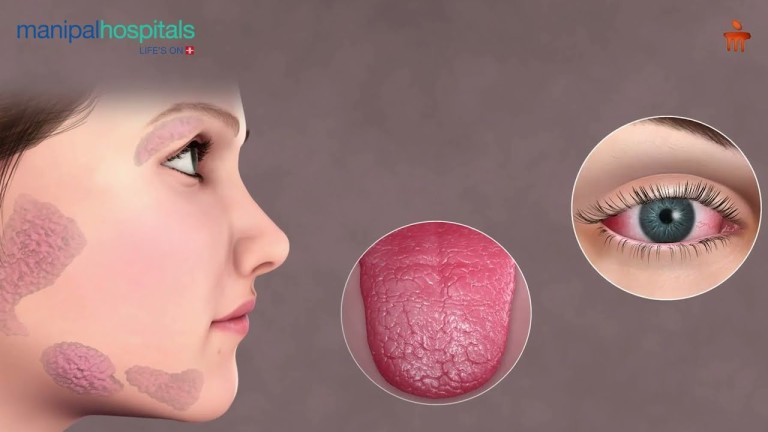
Think dry eyes and mouth are harmless? Think again. Sjögren’s Syndrome is a chronic autoimmune condition that often goes undiagnosed, particularly in women over 40. Early signs like dry eyes, dry mouth,…
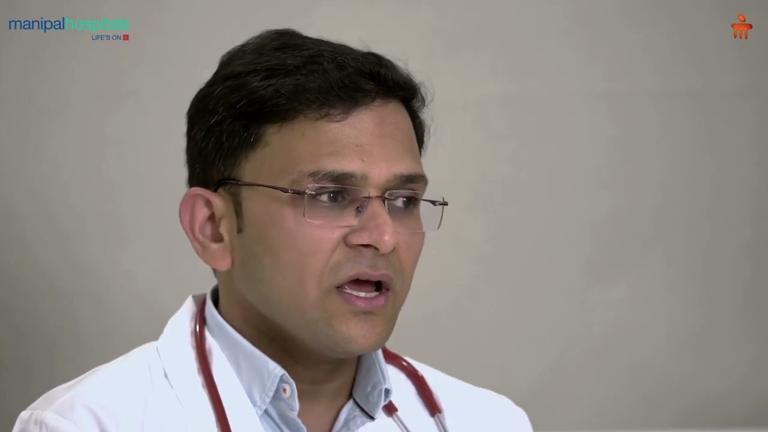
In the continuation of the PID series, Dr. Ankur Kumar Jindal, Consultant - Pediatric Clinical Immunology & Rheumatology, Manipal Hospital Old Airport Road, talks about how primary immunodeficiency diseases…
_(2).jpg)
Primary Immunodeficiency Diseases (PIDs) are genetic conditions where the immune system fails to protect the body from infections. In this video, Dr. Ankur Kumar Jindal, Consultant - Pediatric Clinical…
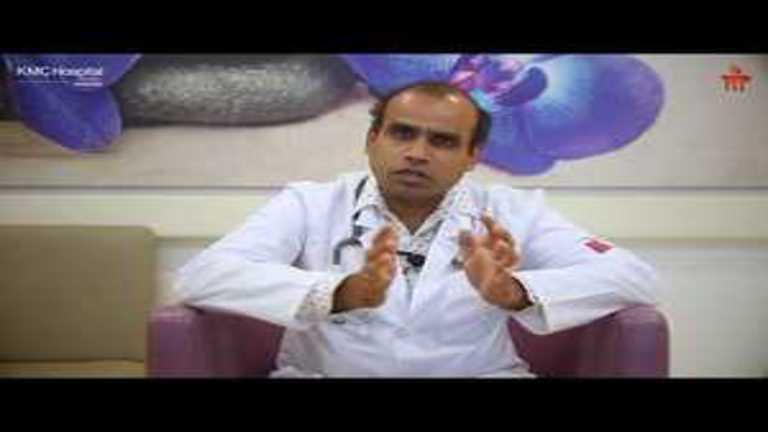
Rheumatoid Arthritis is an inflammatory arthritis that is commonly observed in people. The patients usually experience joint pains that are inflammatory or swollen in nature. Early detections and treatment…
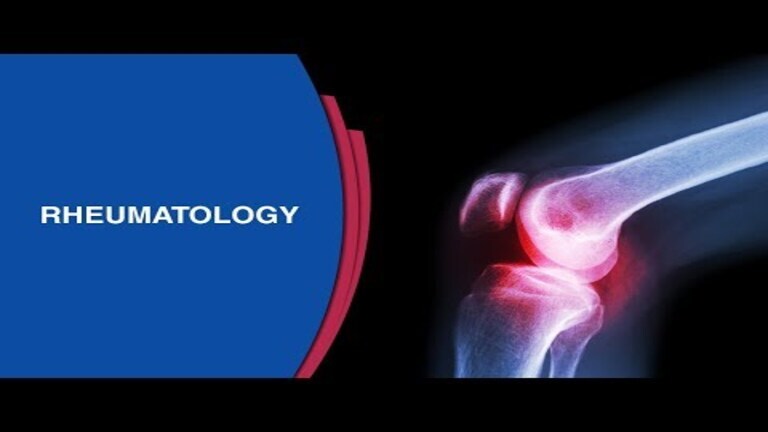
Best Hospital in India: Manipal Hospitals is one of the top multi speciality hospital in India located at all major cities like Bangalore, Vijayawada, Visakhapatnam, Goa, Salem, Jaipur, Mangalore. Provides…
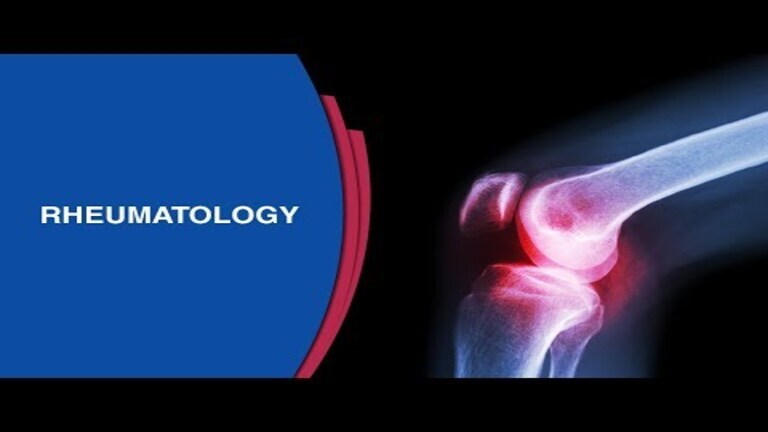
Dr. Hemant K. Kalyan is one of Bangalores top Consultants in Orthopedic surgery & Sports Medicine. Watch him talking about arthritis types and treatments available at Manipal Hospitals.
Home Specialities Rheumatology



Visit the Global site for International patient services

